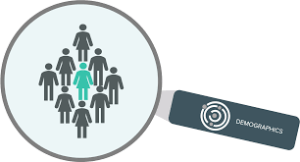Social Services Management
Social Services Management encompasses the planning, organization, direction, and coordination of resources and services to support the well-being of individuals and communities. It involves managing programs and organizations that provide assistance to various populations, such as children, the elderly, people with disabilities, and those facing challenges like substance abuse or homelessness. Effective social services management is crucial for promoting social inclusion, preventing crises, and improving overall community well-being.
Key aspects of Social Services Management include:
- Program Development and Implementation: Identifying community needs, designing and implementing programs to address those needs, and ensuring programs are effective and efficient.
Resource Allocation:
Managing budgets, securing funding, and allocating resources to support program operations and service delivery.
Personnel Management:
Overseeing staff, including social workers, counselors, and other professionals, providing training, and fostering a positive work environment.
Stakeholder Engagement:
Collaborating with community members, partner organizations, and other stakeholders to identify needs, develop solutions, and ensure program effectiveness.
Monitoring and Evaluation:
Tracking program performance, collecting data, and evaluating the impact of services to identify areas for improvement.
Policy and Procedure Development:
Developing and implementing policies and procedures to ensure consistent and ethical service delivery.
Advocacy and Outreach:
Advocating for the needs of clients and communities, raising awareness about available services, and promoting social justice.
Strategic Planning:
Developing long-term goals and strategies for the organization or program, aligning with community needs and available resources.
Examples of Social Services Management:
- Managing a group home for individuals with intellectual disabilities: This involves overseeing the daily operations of the home, ensuring the well-being of residents, managing staff, and coordinating with other service providers.
Directing a community outreach program for homeless individuals:
This includes identifying needs, developing outreach strategies, providing resources like food and shelter, and connecting individuals with long-term support services.
Managing a social services department within a healthcare organization:
This involves developing policies, managing staff, and ensuring that patients receive the social and emotional support they need.
Overseeing a program that provides support services for families in crisis:
This includes assessing needs, developing intervention plans, providing counseling and support, and connecting families with community resources.
Skills and Knowledge Required:
- Management and Leadership: Ability to plan, organize, direct, and control resources and personnel.
Communication and Interpersonal Skills: Ability to effectively communicate with clients, staff, and other stakeholders. Problem-Solving and Decision-Making: Ability to identify problems, analyze information, and develop solutions. Financial Management: Ability to manage budgets, secure funding, and track expenses. Knowledge of Social Services: Understanding of social work principles, community needs, and relevant policies and regulations. Cultural Competence: Ability to work effectively with diverse populations and understand the unique needs of different communities. Data Analysis: Ability to collect, analyze, and interpret data to assess program effectiveness and identify areas for improvement































Post Comment